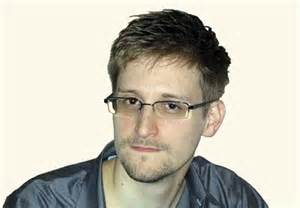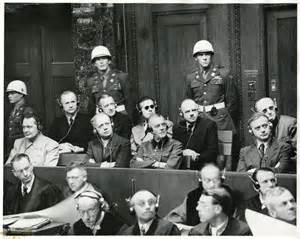Edward Snowden exposed the NSA’s program of massive monitoring of American citizens’ electronic communications. Unless you’ve been living in a cave in Tora Bora, you already knew this. His actions, and his subsequent efforts to find a country to protect him from prosecution in this country, have been getting a lot of ink and air time in the news, as well as  having effects on our international relations, most recently being credited with Obama’s cancellation of his scheduled summit with Putin.
having effects on our international relations, most recently being credited with Obama’s cancellation of his scheduled summit with Putin.
Opinions on Snowden’s actions seem to fall pretty decisively into one of two camps:
Opinion 1: Snowden’s a criminal at the least, and very possibly a traitor. He revealed national intelligence secrets, in clear violation of the law and his oath to maintain secrecy. His actions possibly aided our enemies, fundamentalist terrorists. The monitoring he revealed is all perfectly legal, as authorized and defined by the Patriot Act.
Opinion 2: The NSA monitoring program is a gross violation of Americans’ right of privacy, and Snowden was right in revealing the extent of the monitoring, even though he broke the law to do so. That is the very essence of being a whistleblower. Others in position of authority – particularly knowledgeable elected officials – should have done so long ago. The American people have a right to know if their government – which works for them – is actively spying on them.
I’m firmly in the camp of those who hold Opinion 2, and I’ll tell you why.
First of all, there’s absolutely no evidence of which I’m aware that shows this program to have done anything at all to fight terrorism. On the one hand, we’re told that such indiscriminate “monitoring” is a powerful tool to fight terrorism, while at the same time we shouldn’t worry because there’s so much data being acquired that our own individual privacy is not at risk because there’s simply too much garbage to wade through by the NSA.
Well… which is it? Is there “too much data”, or is it a powerful tool? It sure can’t be both. Either the data is useable, or it’s not. If it’s not, then there’s no valid reason for the program to continue. If the data is useable, then what’s to prevent the government from using it against law-abiding citizens on the merest of whims, any time they feel like it?
Supporters of the program point to the requirement that FISA courts have to approve warrants, but in my earlier essay I already tore that particular rationalization to shreds. It’s laughably meaningless, as the FISA courts function in complete secrecy. A secret court to approve secret warrants to conduct a secret surveillance of private individuals. Why do I not find that reassuring?
Terrorists aren’t stupid. Think about it. In this day and age, even the low-IQ drug dealer on the corner knows to use “burner phones” – one-time-use disposable cell phones – for their communications. Are we supposed to believe that terrorists are dumber than some punk standing on a ghetto corner? That one doesn’t even pass the giggle test.
If I were a terrorist, I’d use my cell phone to talk up a whole bunch of fictitious attacks I was planning… say, on American embassies in a bunch of Middle Eastern countries. I’ll bet I could get the American government to react to that. Maybe they’d close down a bunch of those embassies for a while… maybe even 19 of them. Then, when nothing happened, they’d sure look foolish, wouldn’t they?
Oh, hey… didn’t we just close down a bunch of…
Never mind…
In all these years of having this kind of surveillance program in place, why have we never heard of any examples of how it foiled some terrorist plots? I know, I know… because it would “reveal operational details…”.
Uh huh…
I’ve been highly skeptical of the Patriot Act from its first proposal years ago. Even the name is bothersome, as if it’s somehow “unpatriotic” to be concerned about its potential for abuse and violation of fundamental rights of American citizens.
There’s another aspect to the Snowden affair to consider, too. Granted, he violated the law by revealing those secrets. But if a law is unconstitutional, and/or exceeds its authority or violates citizens’ rights on a wholesale scale, is there an obligation to make that known and oppose it?
 In the post-World War 2 trials of the Nazi war criminals at Nuremberg, the principle was firmly established that hiding behind the law, or in their case “orders”, didn’t relieve individuals from their responsibility to do what’s actually right.
In the post-World War 2 trials of the Nazi war criminals at Nuremberg, the principle was firmly established that hiding behind the law, or in their case “orders”, didn’t relieve individuals from their responsibility to do what’s actually right.
In this case the right thing to do would have been to have a public debate on such a massive and intrusive program, and get it all on the record. But that never happened… UNTIL Snowden blew the whistle.
I’d like to think that I’d have the guts to do the same thing if I were in his place.
© Brian Baker 2013